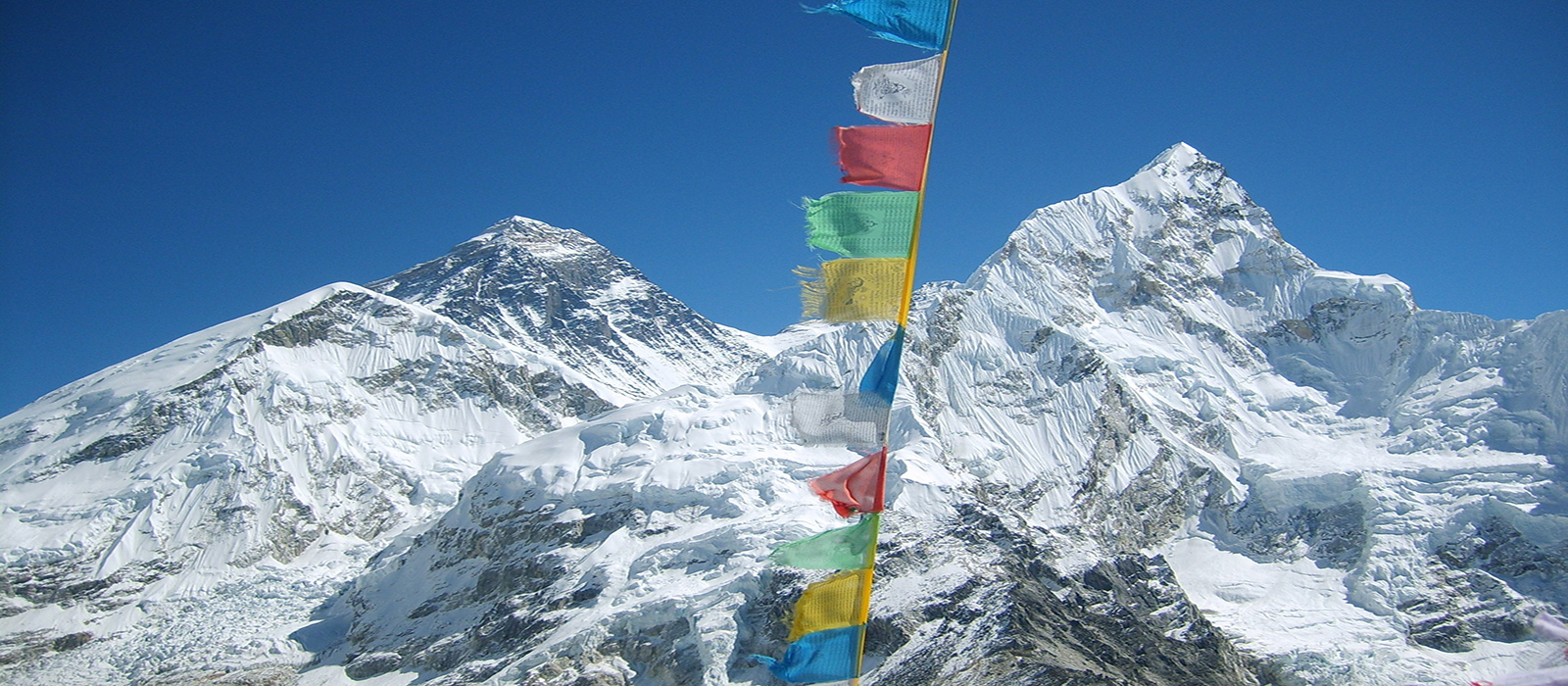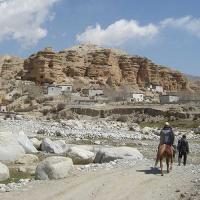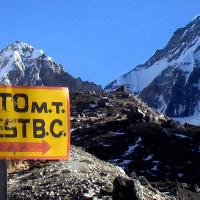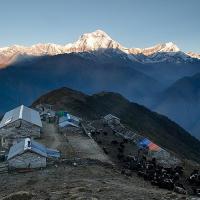
Plan Everest Base Camp Trek

Everest Base Camp trek is every trekker’s once-in-a-lifetime dream or bucket list destination. Everest Base Camp Trek is demanding. Hence, you must plan Everest Base Camp Trek wisely. Various factors need to take into consideration before EBC Trek.
Planning an Everest Base Camp trek can be a daunting task, but with proper research and preparation, it can be a life-changing experience. Here are some steps to help you plan your trek:
Plan your Budget
Budget is the quintessential thing to plan before starting the trek. Decide if you want a budget trek or a luxury trek. And, plan your budget according to it. The cost of the trek can vary depending on the season, accommodation, equipment, gear, transportation, travel insurance, a guide, and a porter. Also, keep an extra budget for your personal use or in case of emergency.
Select the best season
Season plays a significant role if you plan Everest Base Camp Trek. All seasons have their beauties. But, for the Everest trek, Spring (Mar-May) and Autumn (Sep-Nov) are considered best. The weather is clear, and the days are bright and sunny, which makes the trekkers enjoy the views more clearly. The trails are also comfortable to walk despite being steep and rugged.
Acquire necessary permits for EBC Trek
For the Everest Base Camp trek, you must acquire the necessary permits. The essential permits are Khumbu Rural Permit, Sagarmatha National Park Permit (SNP), and Trekkers Information Management System (TIMS). The permits cost is as follows:
- Khumbu permit costs
NPR 2000 (Foreigners)
NPR 1000 (SAARC)
- SNP permit costs
NPR 3000 (Foreigners)
NPR 1500 (SAARC)
- TIMS permit costs
NPR 2000 (Foreigners)
NPR 1000 (SAARC)
Choose the EBC route
In the Everest Region, there are several routes for you to trek to Everest Base Camp. You can take a flight to Lukla and choose the most popular classic route via Namche Bazaar to Everest Base Camp. If you wish for more adventure, you can choose Everest Three Passes Trek or Everest Gokyo Trek via Cho La Pass.
You can also choose EBC Trek via Phaplu, Jiri, or Salleri. For this route, you go via roadways which is the highlight of this route trek.
Hire a guide and/or porter
Since a licensed guide is compulsory for all Everest region treks, you can hire the best guide with the help of the travel agency you are trekking from. The guides are familiar with the Everest region and can speak English well. They help you to navigate, and communicate with the locals.
Also, hire a porter if you wish for a comfortable trek. The Everest trek is challenging and you may not be able to carry your baggage. If possible, look for a guide who can also carry your baggage as a porter.
Train for the EBC trek
Everest Base Camp Trek is very demanding. Thus, requires training before beginning the trek. You must be both physically and mentally fit. Participate in cardiovascular exercises, day hikes, meditation/yoga, and physical training such as hiking, running, swimming, and cycling. Consult a doctor if necessary and take necessary health tests before trekking to high altitudes.
Prepare for Altitude Sickness
Altitude Sickness is common in the mountains. If you are doing the Everest trek, prepare for altitude sickness. Get knowledge on symptoms and preventions of altitude sickness. Consider hiring a guide who can help you identify the symptoms and manage them appropriately.
Altitude sickness can affect anyone, regardless of their level of fitness. It is essential to acclimatize properly and drink plenty of fluids. Avoid alcohol, smoking, and salty foods. Immediately inform a guide and descend if you get altitude sickness.
Book with a reputed Travel Agency
Planning and preparing for the trek or tour is very exhausting. It is best to book with a reputed travel agency that specializes in arranging successful Everest Base Camp Treks. They look after all your accommodation, transportation, permits, and other essential arrangements. Select a travel agency with the best reviews of the clients and look for their services and facilities. This helps you to perform a stress-free Everest Base Camp trek.
Pack appropriately
The altitude in the Everest Region keeps on rising. Hence, it is wise to pack appropriately. Pack lightweight and waterproof warm clothes. Make sure your shoes are strong and durable. List down important things you require and pack accordingly. Pack a backpack, a good quality sleeping bag, personal hygiene kits, water purifying kits, a water bottle, a torch, trekking poles, universal adaptive chargers, and solar power banks.
Travel Insurance
Travel Insurance is very essential if you are trekking in the mountains. You may face several challenges and uncertainties. At that time, travel insurance acts as a safety tool. Make sure to get travel insurance from a trusted agency. It must cover trekking at high altitudes, emergency evacuation, medical emergencies, flight cancellations, and loss of belongings.
Be flexible
Most importantly you must be flexible when you plan for the Everest Base Camp Trek. Some unforeseen conditions like poor weather conditions may rise which may not be in your control. Therefore, it is important to be flexible and you must be ready to adjust plans if such a situation creates.
Have an incredible trekking experience at Everest Base Camp by considering these factors and planning carefully. Make the most out of this Everest Trek and create some remarkable memories to cherish forever.
Suggested Itinerary
Day 01: Arrival in Kathmandu (1310m)
Day 02: Fly to Lukla, trek to Phakding (2610m), 3/4 hours walk
Day 03: Trek Phakding to Namche, 4/5 hours walk
Day 04: Rest at Namche (3440m)
Day 05: Namche to Tengboche (3867m), 5/6 hours walk
Day 06: Tengboche to Dingboche (4260m), 5/6 hours walk
Day 07: Dingboche to Lobuche (4930m), 4/5 hours walk
Day 08: Lobuche to Everest Base Camp and return to Gorakshep, a 5/6 hours walk
Day 09: Hike to Kalapatthar (5,644m) and then back to Pheriche, a 6/7 hours walk
Day 10: Pheriche to Namche bazaar, 5/6 hours walk
Day 11: Namche to Lukla, 5/6 hour walk
Day 12: Lukla to Kathmandu, 40/45 minute flight
FAQs for Everest Base Camp
Do I require travel insurance for the EBC Trek?
Yes, travel insurance is compulsory for the EBC Trek. It is a safety tool against unforeseen events and emergencies.
Can a beginner trekker complete the EBC Trek?
Yes, a beginner trekker can complete the EBC Trek. But, the trekker should consult their doctor and take necessary checkups if necessary.
Do I require to be fit for the EBC Trek?
Yes, you need to be fit for the EBC Trek. You must be physically and mentally fit. EBC Trek duration is long and demanding. It’s best to participate in some physical exercises and day hikes before starting the trek.
Are the guides compulsory for the EBC Trek?
Yes, the guides are compulsory for the EBC Trek as per the law of Nepal. The guide assures your safety and looks after all your needs.
Is there an ATM facility during EBC Trek?
Yes, there is an ATM facility during EBC Trek at 3 places. But, it is best to carry some Nepalese currency with you. ATMs may not work sometimes. There may also be a long queue at ATMs.
How much cash should I carry during EBC Trek?
It is your personal choice. On average, your daily expense is NPR 3000-4000. So, it is best to carry extra expenses for your expenses and emergencies.
How difficult is EBC Trek?
The Everest Base Camp trek is moderately difficult. The high elevations, long duration, steep trails, and weather conditions can be some challenging factors.







Post your comment